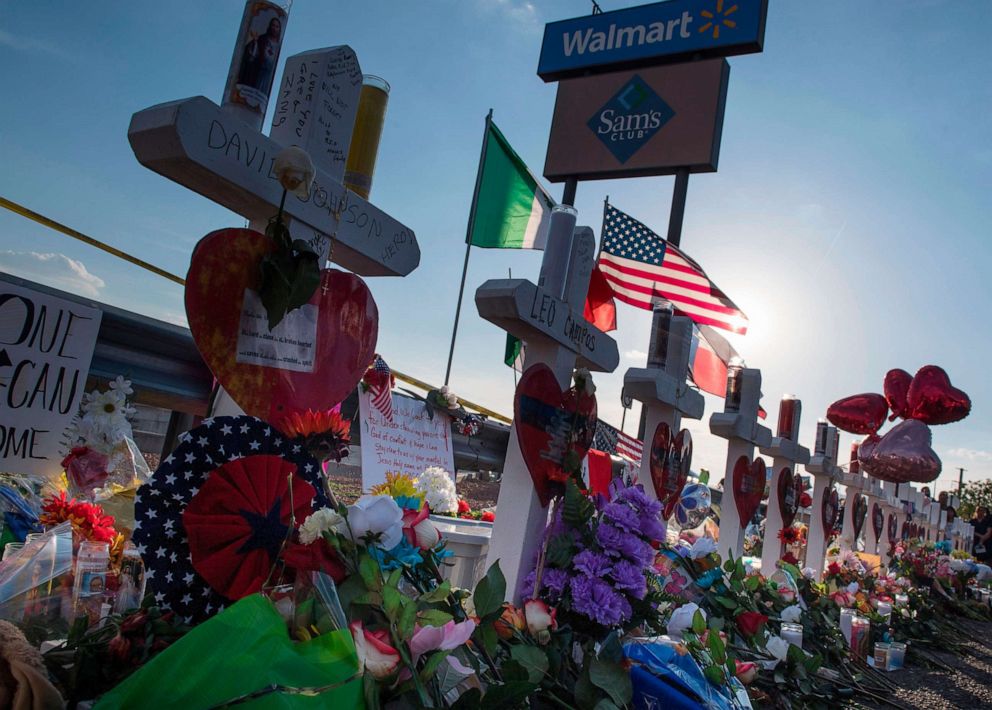Hate crimes in US reach highest point since 2008, FBI statistics show
Murders motivated by hate also increased by more than 112%.
After a gunman walked into a Walmart in El Paso, Texas, last summer, and killed nearly two dozen — mostly Hispanic — people, investigators discovered a screed allegedly written by the suspect, in which he discussed his hate for immigrants and Mexicans, according to authorities.
In addition to state capital murder charges, the gunman, Patrick Crusius, faces 22 federal hate crime charges stemming from the deaths of the people he is accused of murdering.
That incident contributed to a more than 112% increase in hate crime murders between 2018 and 2019, according to statistics released Monday by the FBI as part of its Uniform Crime Reporting Program. There were 51 murders in 2019 and 24 the year before. Anti-Latino hate crime incidents also saw an increase in 2019.
According to the FBI's newly released statistics, hate crimes rose in the United States for four out of the last five years.
In 2018, there were 7,120 hate crimes total, and in 2019, there were 7,314 — a 3% increase. That's the highest it has been since 2008, when there were 7,783 hate crimes across the country.

Like in 2018, more than half of the incidents were race-based, followed by crimes based on religion and crimes based on sexual orientation, according to the FBI. Within the race-based category, nearly 50% were anti-African American incidents, followed by 16% anti-white incidents and 14% anti-Latino/Hispanic incidents.
Crimes based on gender identity also increased, from 157 anti-transgender bias incidents to 173.
However, the number of law enforcement agencies that reported their hate crime statistics to the FBI dropped by over 400 agencies, according to the agency. In 2018, just over 16,000 agencies reported its hate crime statistics, while in 2019, 15,588 agencies submitted their numbers. It is not mandatory for law enforcement agencies to send these statistics to the FBI, and it is not known how the decrease in law enforcement agencies reporting affected the data.
The Anti-Defamation League, an anti-hate organization, urged Congress to enact more legislation against hate crimes after the FBI released the statistics.
“When one individual is targeted by a hate crime, it hurts the whole community — that’s why people are feeling vulnerable and afraid,” ADL CEO Jonathan Greenblatt said in a statement. “We urge Congress to immediately pass the Jabara-Heyer NO HATE Act to improve hate crime training, prevention, reporting and best practices.
The NO HATE Act would increase reporting for agencies, provide grants for state-run hate crime hotlines and establish alternative sentencing for individuals convicted under existing hate crime statues.




